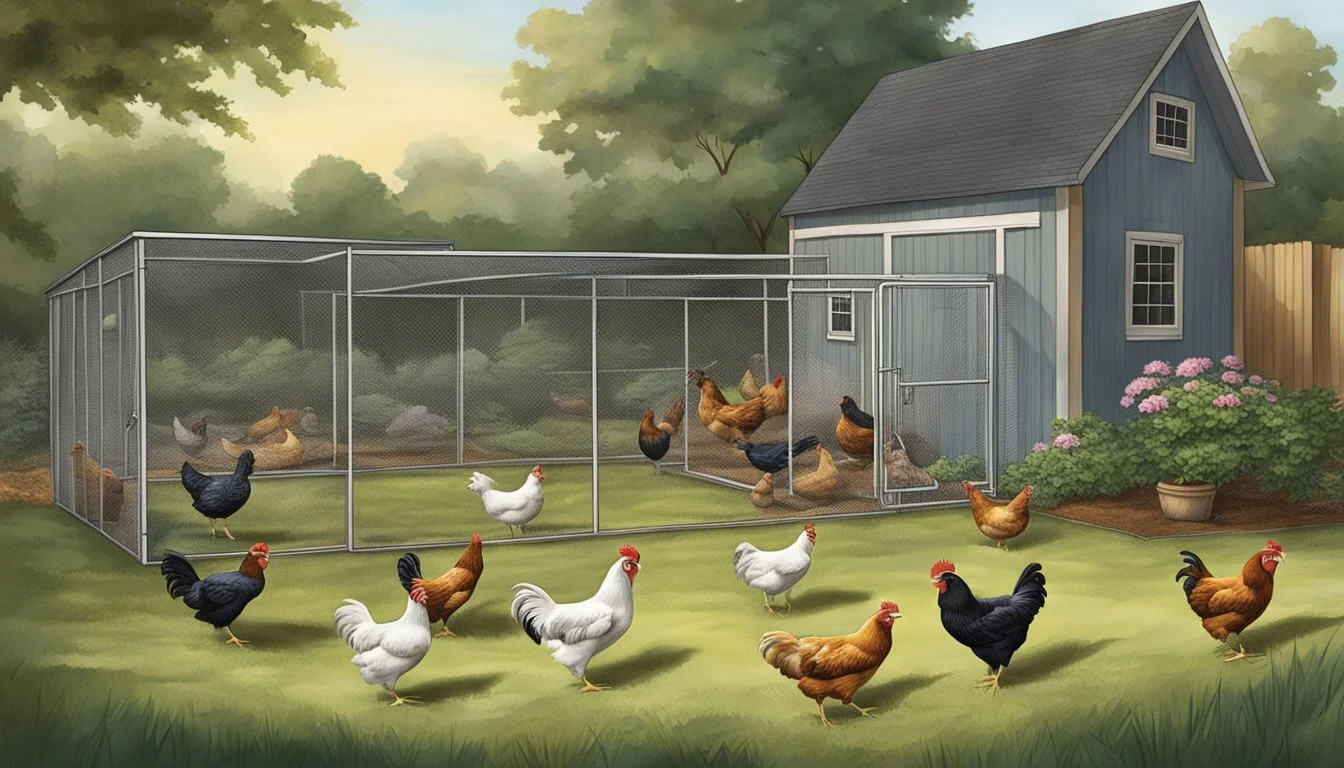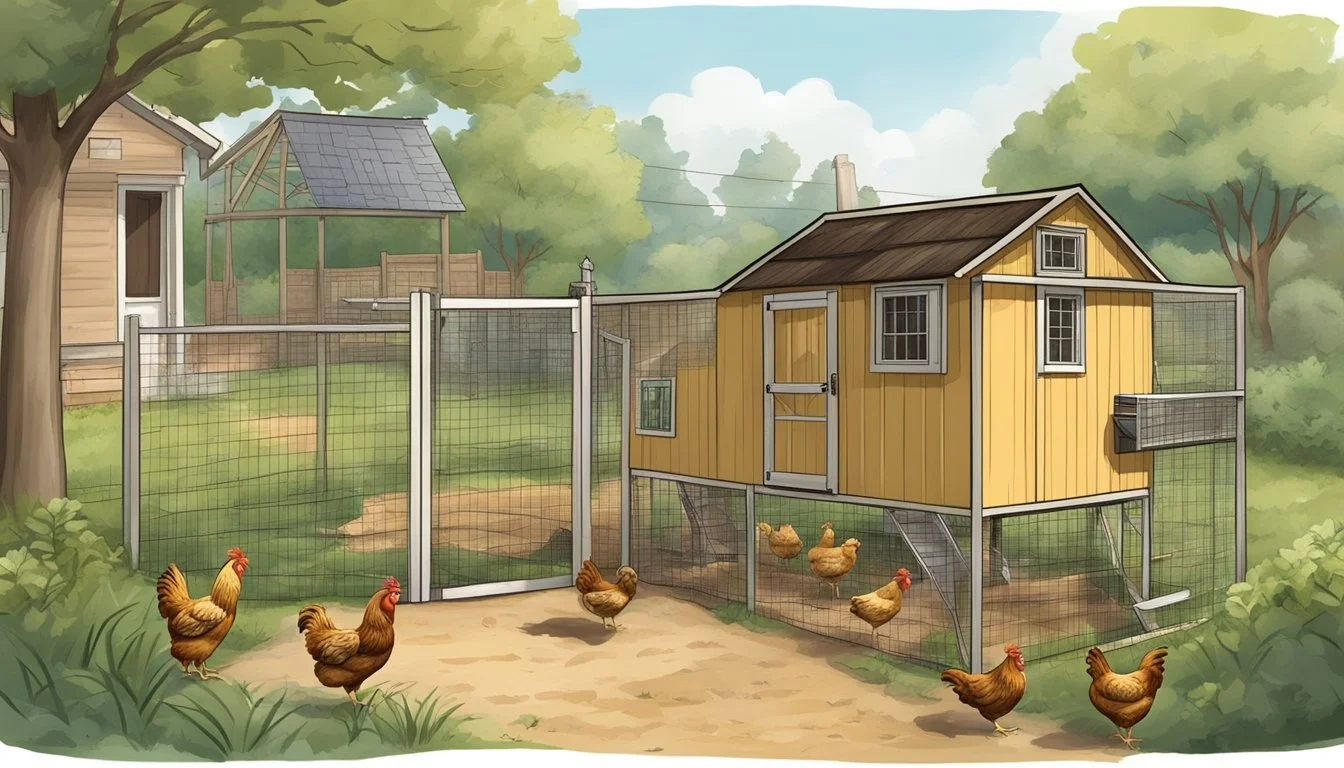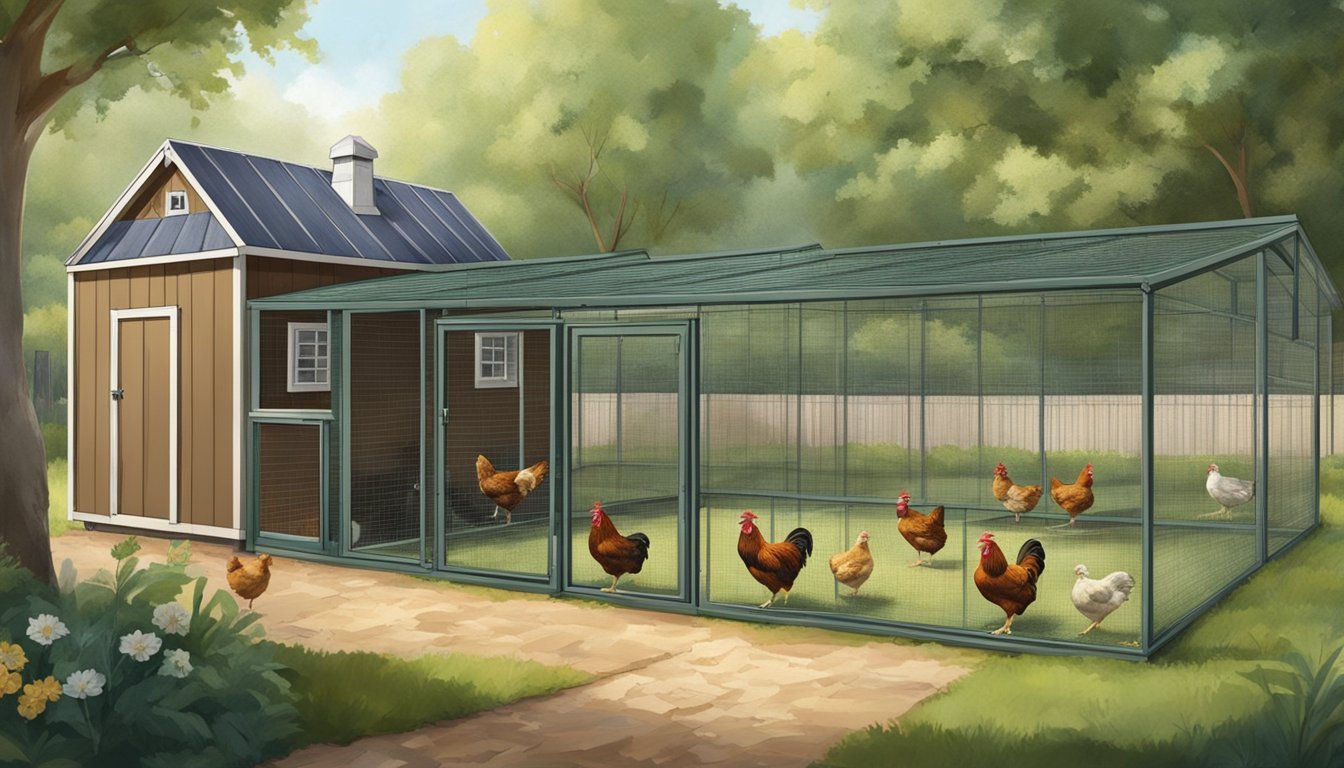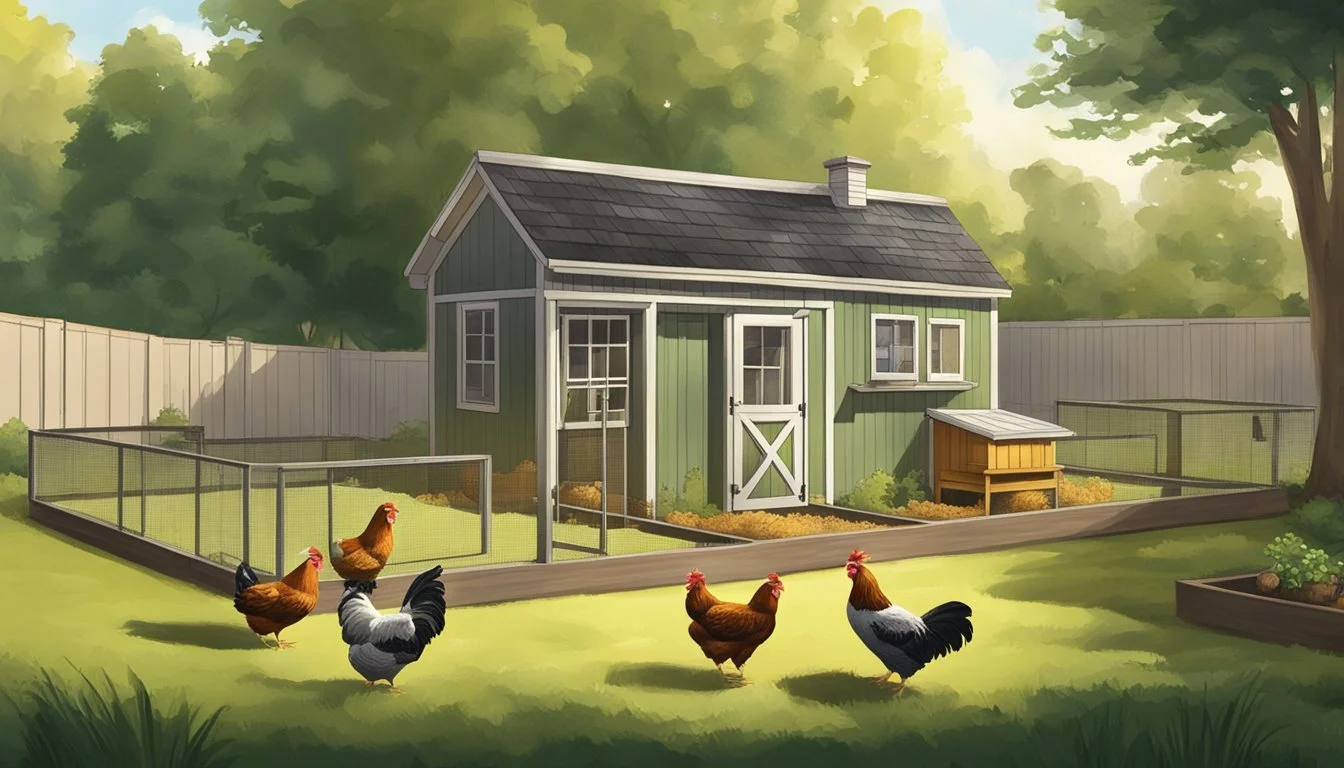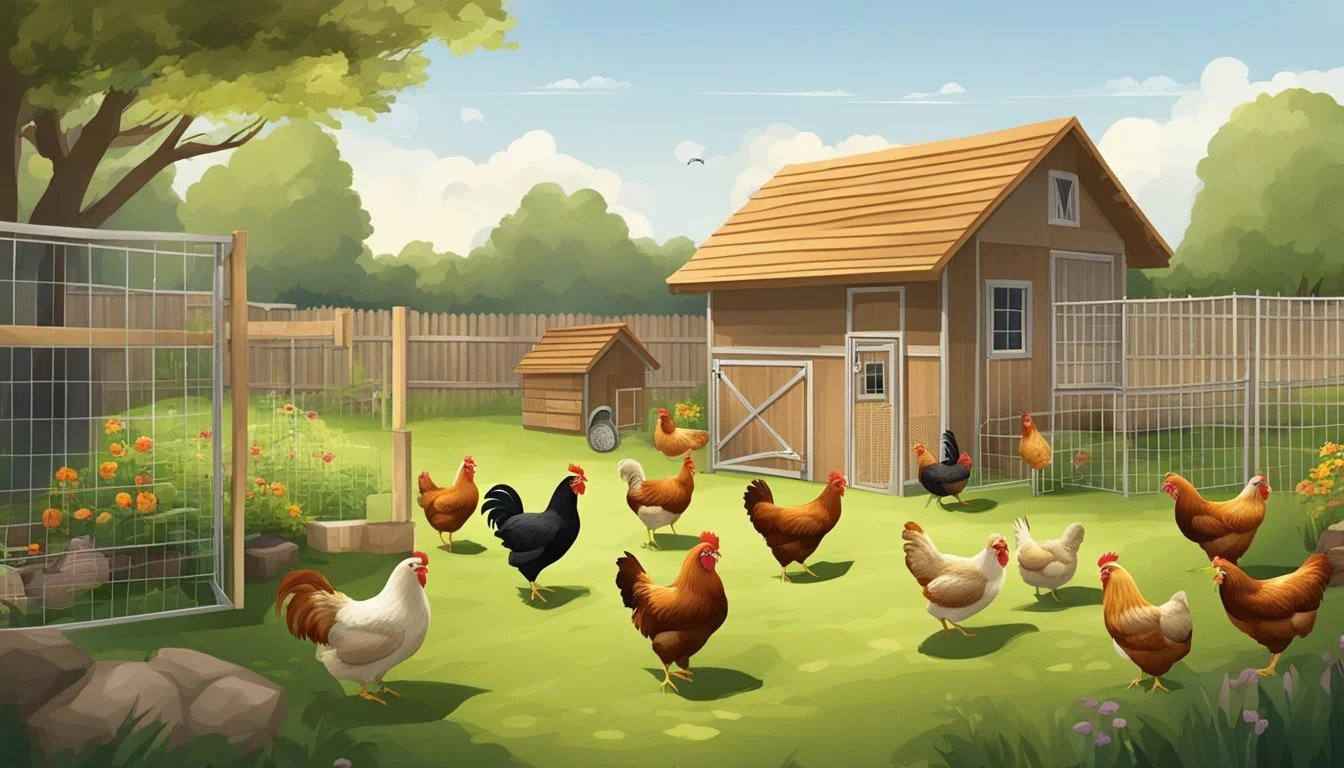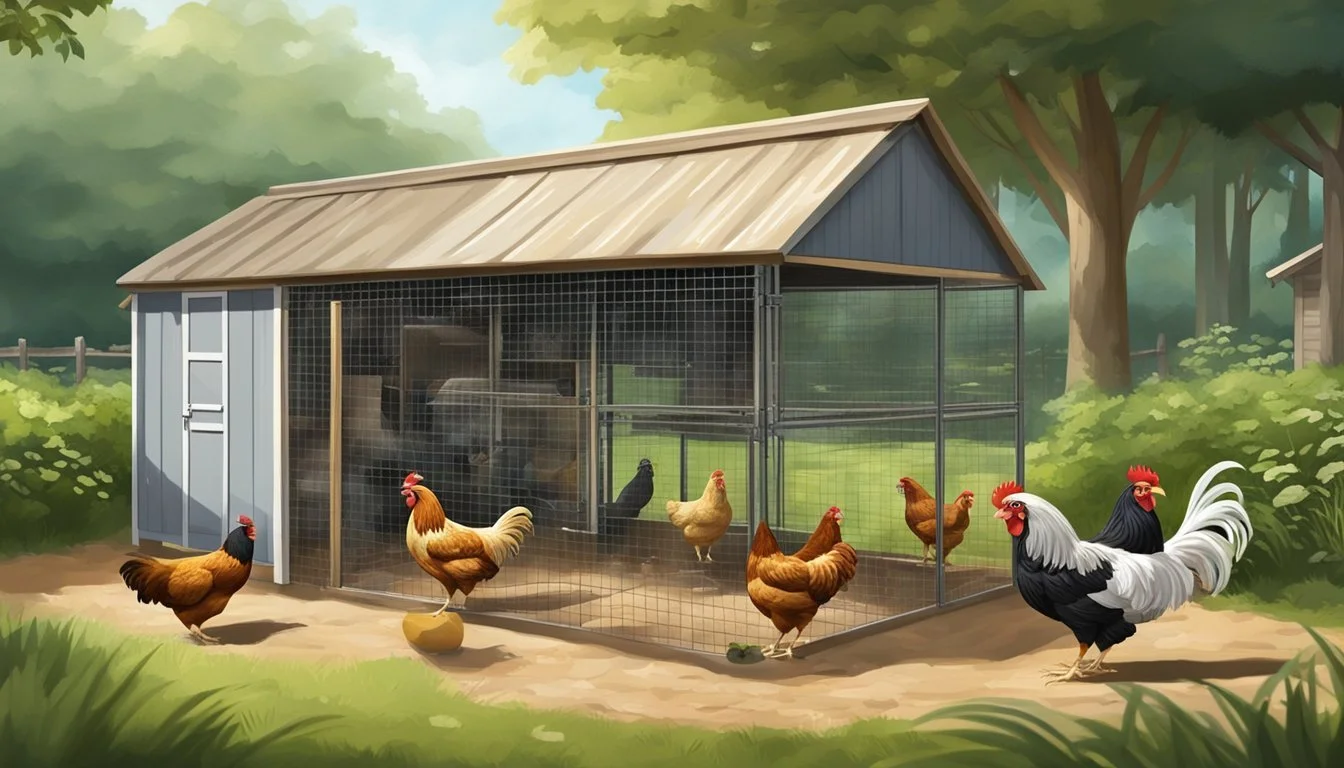Keeping Backyard Chickens in Montgomery, AL
Essential Tips for Success
Residents of Montgomery, Alabama, have the opportunity to embrace sustainable living practices by keeping backyard chickens (how long does chicken last?). These birds offer various benefits such as fresh eggs, natural pest control, and the joy of caring for animals. However, the city has instituted clear regulations to ensure this practice does not disturb neighbors or create public health issues.
Individuals can keep hens in their backyards within Montgomery's city limits, but they need to adhere to set guidelines. For example, only hens are permitted; roosters are prohibited due to their potential to cause noise disturbances. The number of hens one can have depends on their property size, ensuring that chickens have enough space and that their coops are sufficiently far from neighboring houses.
Properties under half an acre can have up to four hens, while larger plots may accommodate more. Certain zoning districts, specifically agricultural zones AGR-1 and AGR-2, and various residential districts, allow the keeping of chickens, sometimes requiring a special exception from the Board of Adjustment. Understanding and following these regulations is essential for any Montgomery resident interested in keeping backyard chickens.
Legal Considerations
In Montgomery, Alabama, individuals must navigate several legal layers to ensure their backyard chicken keeping practices are in compliance with city ordinances. Understanding these regulations is crucial for any resident considering raising chickens within city limits.
Understanding Local Ordinances
Montgomery has specific local ordinances in place that impact the keeping of backyard chickens. The city distinguishes clearly between what is permissible and what is not. Individuals must consult the Montgomery City Code to ensure they stay within legal boundaries.
Permit Requirements
Residents in Montgomery interested in keeping backyard chickens are obligated to follow the city's permit requirements. Depending on the location and the number of chickens, obtaining a permit might be a necessary step before setting up a coop.
Property Line and Space Regulations
The local government in Montgomery has set forth regulations regarding the proximity of chicken coops to property lines. These rules are established to respect the space and rights of neighboring properties, often requiring coops to be kept a certain distance away from adjacent dwellings.
Prohibitions on Slaughtering
In many municipalities, such as Montgomery, there are ordinances that strictly prohibit the slaughtering of chickens on residential properties. This is largely in place to address public concern over sanitary conditions and animal welfare.
Dealing with Nuisance Complaints
Backyard chickens in Montgomery, AL can sometimes lead to public nuisance complaints. Should a complaint be made, the city outlines specific procedures to address the concerns, which could include mediation or assessment by local authorities to mitigate any issues causing the nuisance.
Residents must adhere to these regulations to keep the peace and avoid conflicts with neighbors or local enforcement agencies.
Setting Up Your Chicken Coop
In Montgomery, setting up a chicken coop requires careful planning around location, size, and defense against predators, as well as ensuring ongoing cleanliness to maintain a healthy environment for raising backyard chickens.
Choosing the Right Location
Selecting an ideal location for a chicken coop involves considering sunlight exposure, drainage, and proximity to the home. It's important to place the coop in an area that receives sufficient sunlight but also has some shaded regions to protect chickens from excessive heat. Good drainage is crucial to avoid water accumulation that can lead to muddy conditions and potential health issues for the chickens.
Coop Size and Design
The coop size should accommodate the number of chickens, with typical recommendations suggesting a minimum of 4 square feet per chicken inside the coop. The design should include essential features such as nesting boxes, roosts for sleeping, and adequate ventilation to ensure fresh air circulation. It is also beneficial to provide an outdoor run, offering an additional 4 square feet per chicken for optimal movement and foraging.
Security Measures Against Predators
To protect chickens from local predators, robust security measures are necessary. Building a coop with durable materials and secure latches can prevent entry by raccoons and other wildlife with dexterous paws. The coop should include:
Heavy-duty wire mesh to resist chewing
Locking doors and windows
Latches that raccoons and similar animals cannot manipulate
Maintaining Cleanliness
Regular cleaning is essential to keep chickens healthy and the coop free from odors and pests. The coop should have an easily accessible design for cleaning, with removable trays for waste and space for fresh bedding. Regularly changing water and feed, along with removing waste, minimizes the risk of disease and infection.
Chicken Care and Management
Proper care and management are crucial for the health and productivity of backyard chickens in Montgomery, AL. Keepers must ensure chickens have access to adequate food, water, and healthcare while also understanding the processes for hatching eggs and raising chicks.
Feeding and Nutrition
Chickens require a balanced diet that includes proteins, carbohydrates, fats, vitamins, and minerals. Commercial chicken feed typically provides a formulated balance suitable for different stages of a chicken's life cycle. Laying hens, for example, need a higher calcium content to support eggshell production. Treats and kitchen scraps should only complement their diet and not exceed 10% of their overall food intake.
Starter Feed: for chicks up to 6 weeks old, contains 20-24% protein.
Grower Feed: for chickens 6-20 weeks old, contains 16-18% protein.
Layer Feed: for egg-laying hens, contains about 16% protein.
Water Supply and Quality
Chickens must have constant access to clean water. Water containers should be checked daily to ensure they are free of contaminants and algae. During warmer months, water consumption can double, so providers should adjust accordingly. Any change in water intake can signal health issues and should be addressed promptly.
Clean water containers: Minimum once a week.
Monitor water levels: Especially during hot weather or when the flock size increases.
Recognizing and Addressing Health Issues
Keepers should observe their flock daily for signs of illness, such as lethargy, abnormal droppings, or changes in eating habits. Common health issues include respiratory illnesses and parasites, which require immediate attention to prevent spreading. A well-ventilated coop and proper sanitation reduce disease risk. Quarantining new or sick birds is also recommended.
Daily Observation: Monitor behavior and physical condition.
Preventive Measures: Maintain cleanliness, provide vaccinations if available.
Hatching Eggs and Raising Chicks
Incubating eggs and raising chicks require detailed attention. Hatching eggs should be kept at a steady temperature and humidity level in an incubator for about 21 days. Once hatched, chicks need a warm brooding area and should be fed a high-protein diet to ensure proper growth. Protection from predators and proper socialization are also key aspects of raising chicks.
Incubation: Maintain 99.5°F temperature and around 55% humidity.
Brooder Setup: Keep temperature around 95°F for the first week and reduce by 5°F each week thereafter.
Community and Environmental Impact
Keeping backyard chickens in Montgomery, Alabama, entails addressing concerns such as noise and odor control, understanding egg production and consumption practices, and fostering relationships within the local community.
Managing Noise and Odor
In Montgomery, homeowners are responsible for mitigating the noise and odors that their backyard chickens may produce. Noise is a primary concern, particularly related to roosters, which are prohibited due to their loud crowing. Odors can also arise from chicken manure and must be handled through proper waste management. Composting can be an effective strategy for both reducing waste and creating useful fertilizer, enhancing sustainability.
Noise control: Keeping only hens, which are typically less noisy than roosters.
Odor management: Regular cleaning of coops and proper disposal or composting of chicken waste.
Egg Production and Consumption
The benefits of fresh egg production are a draw for many residents, who appreciate having a ready supply of nutritious food. Eggs produced by backyard chickens are often regarded as superior in taste and freshness compared to store-bought options. However, it is important to follow safe handling practices to prevent any potential health issues.
Benefits:
Freshness and taste of home-produced eggs.
Potential health advantages over commercial eggs.
Engaging with Neighbors and Local Community
Backyard chicken keepers in Montgomery can utilize social media and education to share experiences and build community connections. Engagement with neighbors is crucial to dispel concerns about the potential messy aspects of raising chickens in Alabama. Educational efforts can help neighbors understand the benefits and responsibilities involved in chicken keeping.
Community engagement:
Using social media to share knowledge and experiences.
Educational initiatives to foster understanding and good practices among the broader community.
By considering noise levels, odor management, and community relations, chicken owners can ensure their activities positively influence the environment and social fabric of Montgomery.
Legal Variations Across Alabama
Within Alabama, backyard chicken keeping laws vary from city to city, with some municipalities having specific ordinances governing the number of chickens allowed, property size requirements, and other pertinent regulations. These rules can differ significantly, so it's crucial for residents to understand the local guidelines for their city or county.
Birmingham Chicken Keeping Laws
In Birmingham, residents are permitted to keep up to six hens on residential properties. There is a minimum lot size requirement of 5,000 square feet for chicken keeping. Roosters are typically not allowed due to noise concerns.
Chicken Regulations in Huntsville
Huntsville allows residents to keep chickens, but the rules include a condition that coops must be kept a certain distance from neighboring houses. This distance requirement is designed to minimize any potential nuisance to surrounding properties.
Auburn and Daphne Poultry Rules
For Auburn, specific ordinances outline the guidelines for backyard chickens, including coop specifications and setbacks. Contrastingly, Daphne has been considering new ordinances to regulate chicken keeping as the practice gains popularity in the region.
Backyard Fowl in Florence and Baldwin County
In Florence, the local laws regulate the keeping of backyard chickens, focusing on coop placement and property line setbacks similar to other cities. Baldwin County also has its guidelines, often differing from city regulations within its jurisdiction, emphasizing the necessity for residents to check the laws applicable to their exact location.
Additional Considerations
While backyard chicken keeping in Montgomery, AL is subject to specific regulations, residents should also weigh insurance, alternative options, and local resources before proceeding.
Insurance and Liability
Residents should consult their insurance providers to understand coverage and liability regarding backyard chickens. Homeowner’s insurance policies may not automatically cover damage or injuries caused by pets, including poultry. Additional liability coverage could be necessary to mitigate risks associated with chickens in residential areas.
Alternatives to Backyard Chickens
For those unable to meet regulations or seeking other options, alternatives include:
Community gardens: Participate in communal spaces where chicken keeping is regulated and supported.
Off-site coops: Rent space in nearby farms or coops that allow for personal chicken rearing without having backyard chickens.
Local Support and Resources
Residents should utilize local resources to navigate the intricacies of backyard chicken keeping. Relevant resources include:
Montgomery County Extension Service: Offers guidance on local agricultural practices.
Local poultry clubs: Provide support and share knowledge among chicken enthusiasts.
Board of Adjustments: A body to appeal for permissions related to keeping chickens in residential zones.

